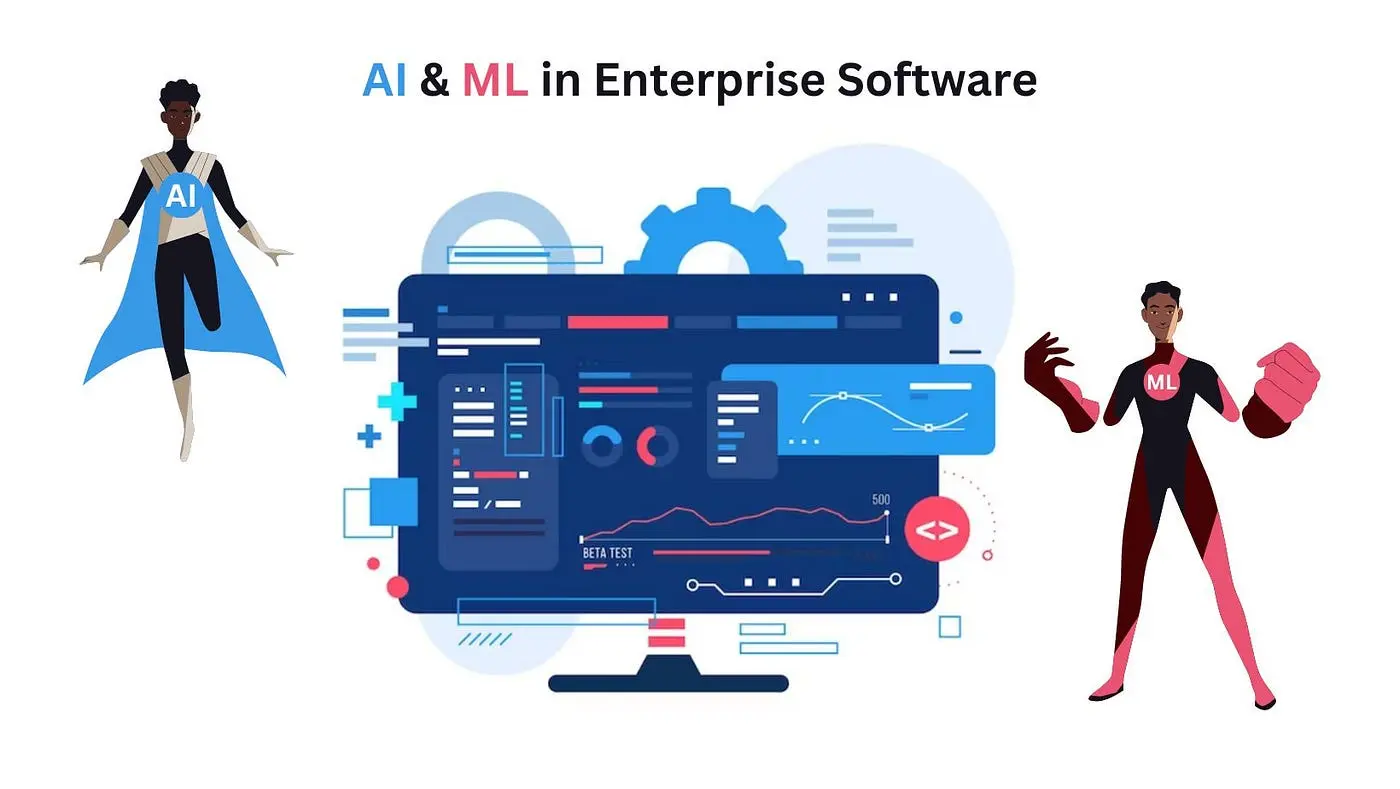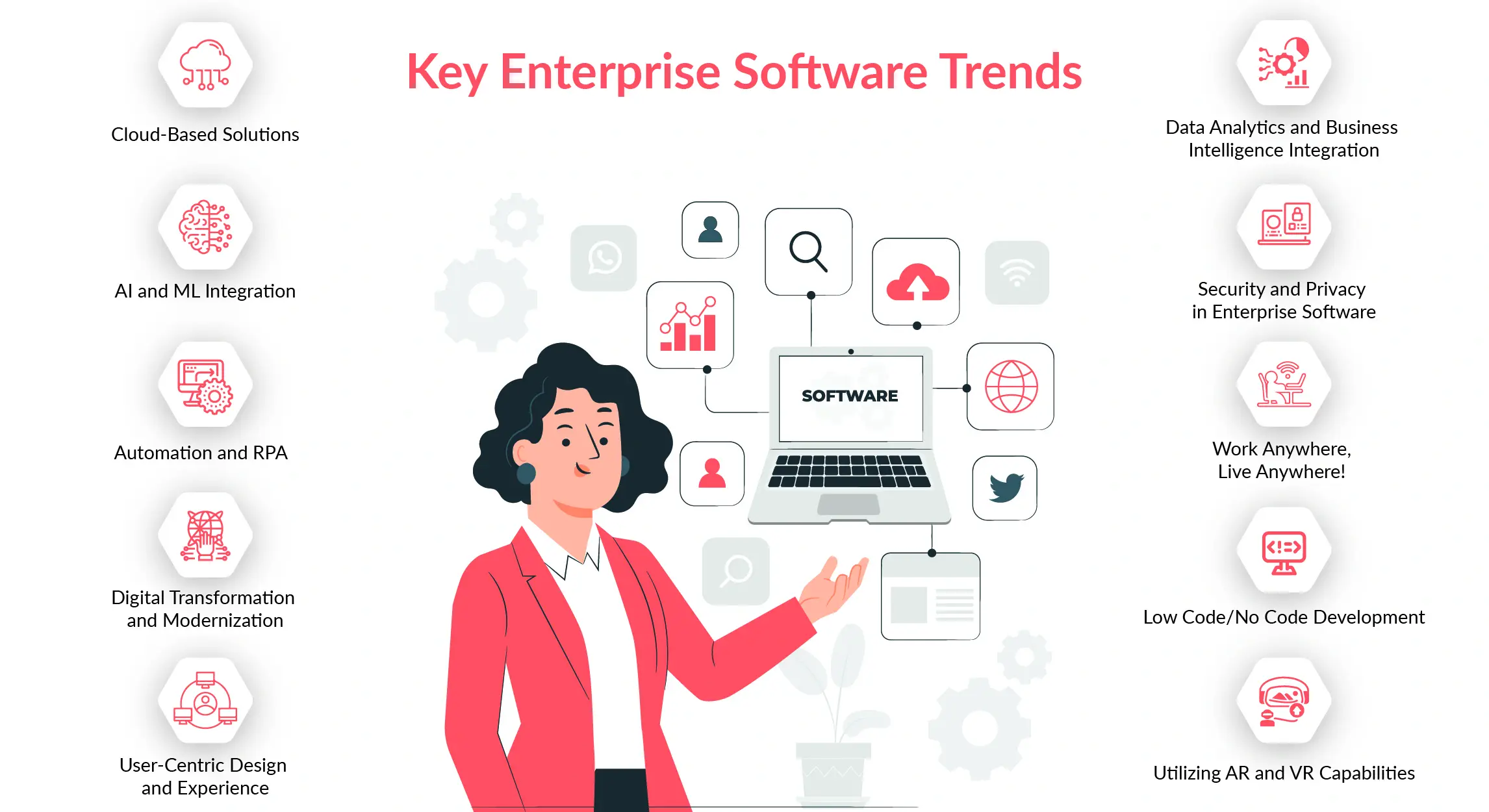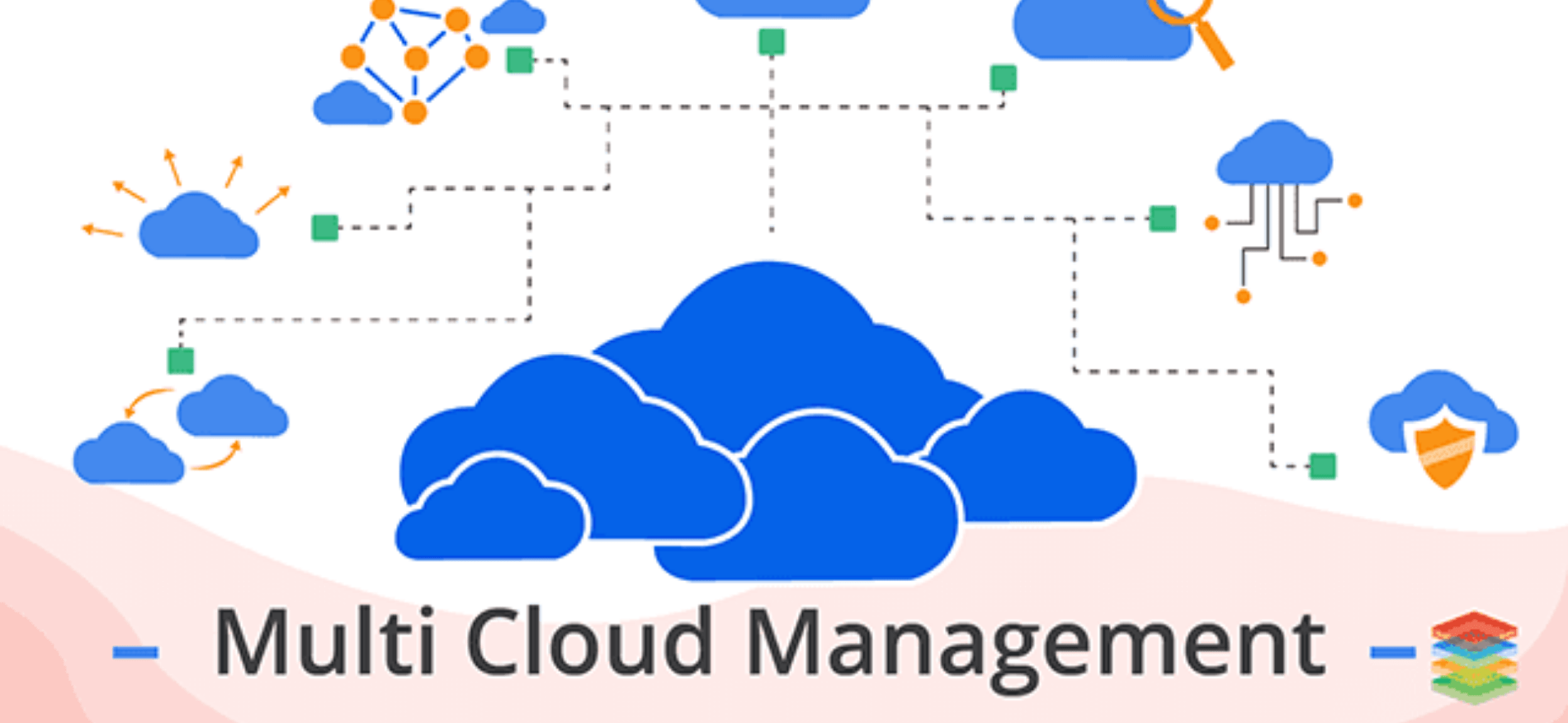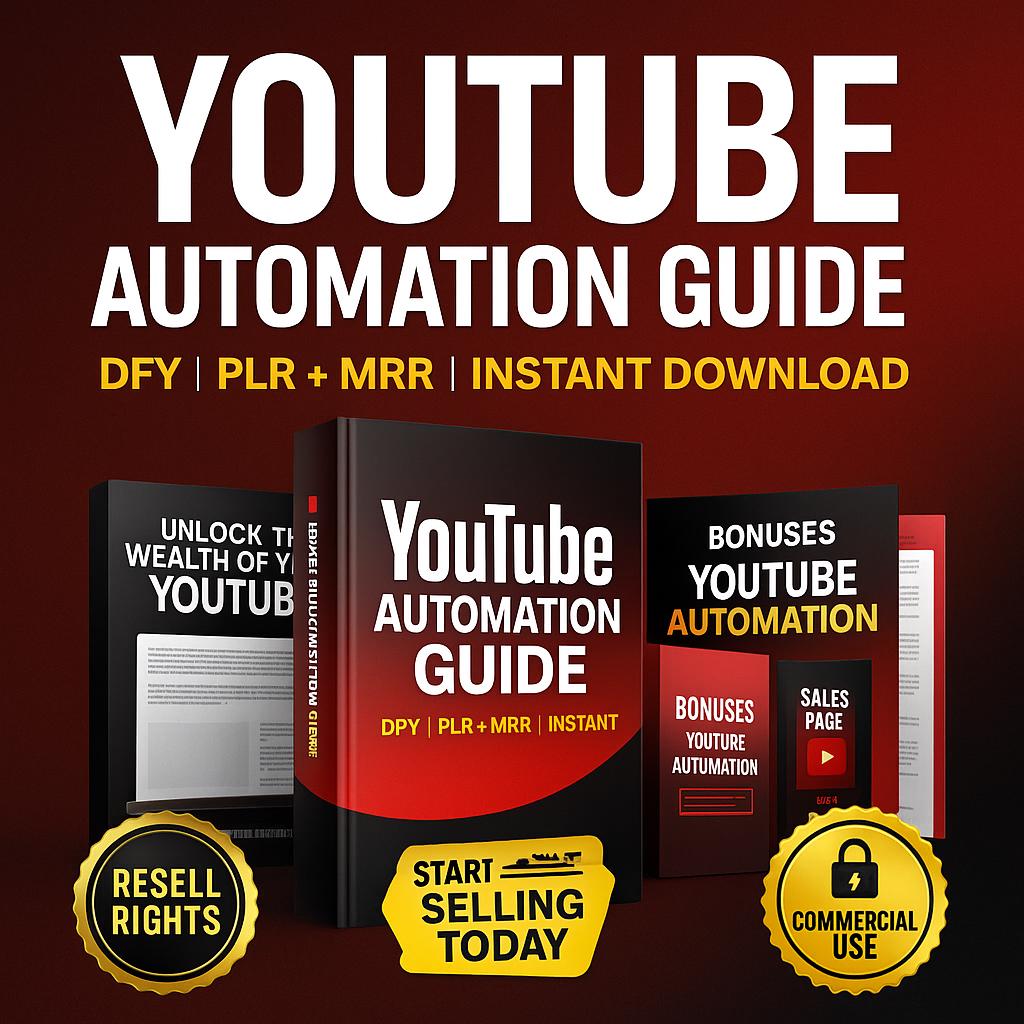The Business Impact of Enterprise Applications and Tools
Modern companies no longer rely on fragmented software systems. Instead, they deploy integrated enterprise applications and tools that centralize data, workflows, and decision-making processes. Benefits include:
- Enhanced cross-functional collaboration
- Real-time data analytics and reporting
- Automated routine operations
- Faster go-to-market strategies
- Greater IT cost efficiency through cloud adoption
From human resources to finance to customer service, enterprise software tools are helping teams move smarter and faster.
Popular Enterprise Applications and Their Core Use Cases
| Tool Category | Common Platforms | Main Purpose | Cloud Support |
|---|---|---|---|
| ERP Systems | SAP, Oracle, NetSuite | Resource planning, procurement, HR | ✅ |
| CRM Solutions | Salesforce, HubSpot, Zoho | Customer data management & sales | ✅ |
| Project Management | Jira, Asana, Monday.com | Workflow coordination, productivity | ✅ |
| Analytics & BI Tools | Power BI, Tableau, Looker | Data visualization & decision support | ✅ |
| HR Management Tools | Workday, BambooHR, Gusto | Payroll, hiring, employee engagement | ✅ |
| Communication Platforms | Slack, Microsoft Teams, Zoom | Messaging, conferencing, collaboration | ✅ |
Each of these enterprise applications and tools plays a role in simplifying complex business operations across departments.
Why Cloud-Native Enterprise Tools Are Leading the Shift
Cloud-based solutions now dominate enterprise IT planning. In fact, over 85% of businesses rely on cloud-hosted enterprise applications for scalability, security, and remote accessibility.
Benefits of cloud-first enterprise tools include:
- Seamless updates and feature rollouts
- Scalable infrastructure for global operations
- Reduced reliance on internal IT maintenance
- Built-in data backup and recovery solutions
This flexibility is crucial for modern, hybrid work environments.
AI and Automation Embedded in Enterprise Systems
The most advanced enterprise applications and tools now include AI-driven features that optimize daily operations. From predictive analytics to smart scheduling, artificial intelligence helps businesses:
- Automate data entry and approval workflows
- Detect anomalies in real-time financial data
- Forecast supply chain disruptions
- Personalize customer experiences
- Accelerate decision-making with natural language queries
These innovations help reduce human error and improve operational speed.
Industries Embracing Enterprise Technology
Adoption of enterprise applications and tools has expanded beyond the tech sector. Leading industries leveraging these solutions include:
- Healthcare: For patient data, compliance tracking, and scheduling
- Retail: For omnichannel inventory, CRM, and POS systems
- Finance: For regulatory reporting and portfolio management
- Manufacturing: For logistics, maintenance, and supply chain visibility
- Education: For admissions, learning management, and analytics
Each sector uses tailored enterprise software to meet its unique goals and regulatory requirements.
Key Features Modern Enterprises Demand
Today’s decision-makers expect enterprise applications and tools to be:
- Highly configurable with intuitive dashboards
- Mobile-ready for teams on the move
- Secure by design, with role-based access controls
- API-integrated for seamless data exchange
- Compliant with GDPR, SOC 2, HIPAA, and other global standards
Solutions that meet these expectations are seeing record-high adoption rates.
Conclusion: Enterprise Applications and Tools Are Driving Business Forward
In 2025, innovation is no longer optional—it’s built into the DNA of successful organizations. And at the core of that innovation are enterprise applications and tools that bring clarity, agility, and efficiency to every layer of business.
From automating workflows to enabling data-led strategies, the right enterprise solutions are helping businesses scale smarter—and stay competitive in a digital-first world.







